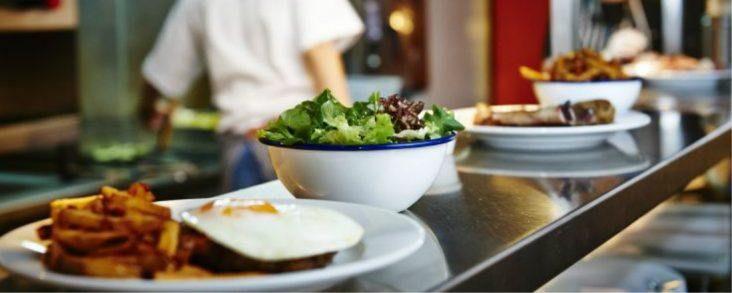Tourism numbers take a hit in Fort Smith metro; restaurant sector improving
by September 8, 2020 4:26 pm 936 views

Not unlike other parts of the state, the Fort Smith metro tourism sector has been beat up by COVID-19 during the first half of 2020. Maryl Purvis, director of the Van Buren Advertising & Promotion Commission, said it could be the second quarter of 2021 before the sector sees a rebound.
Van Buren hospitality tax revenue between January and June totaled $274,008, down 11.8% compared with the same period in 2019. Fort Smith hospitality tax revenue between January and June was $288,568, down a troubling 36.9% from the $457,329 in the same period of 2019.
Van Buren and Fort Smith were on different ends of the spectrum in terms of municipal hospitality tax revenue losses measured by the Arkansas Tourism Ticker. All 17 of the cities surveyed for the Arkansas Tourism Ticker posted hospitality tax collection declines for the first six months with the declines ranging from 40.5% in El Dorado and 5.6% in Pine Bluff. (Link here for the most recent Arkansas Tourism Ticker report.)
The hit to Van Buren’s revenue was lower because the city has a tax on lodging and prepared foods, whereas Fort Smith revenue is from lodging only.
“Even with the increased business in July, lodging is still well below last year and is a major concern. I think, for lodging in particular, it will be at least the second quarter of 2021 before we see any real rebound,” Purvis said.
She said the restaurant sector, especially with the city partially straddling Interstate 40, has helped bolster the city’s business and travel sector.
“Our July numbers looked good compared to other areas of the state and the ongoing pandemic. My July lodging was still 10% below July of last year, but again, compared to other areas of the state that’s not bad. Prepared food was actually up almost 4% over July of last year. I think sitting on I-40 is helping us recover a little faster in the lodging sector. Fast food is carrying our prepared food numbers. Almost without exception our fast food restaurants did better this July than July 2019,” Purvis said.
The metro tourism industry has also seen a jobs hit. The average monthly jobs count between January and June was 8,600, down 9.5% compared with the same period in 2019. The Northwest Arkansas metro average was down 7%, the central Arkansas metro was down 15.6%, the Memphis-West Memphis region posted a 16% decline, and the Texarkana metro was down 10.6%.
However, as Purvis noted about tax numbers, the job numbers began to improve in July. The U.S. Bureau of Labor Statistics reported estimated regional leisure and hospitality jobs at 9,600, up from 9,100 in June, and just below the 9,700 in July 2019. The sector fell to 6,700 jobs in April.
The statewide 2% tourism tax generated $220,395 in Sebastian County during the first six months of 2020, down 31.44% compared with the same period in 2019. The tax in Crawford County totaled $70,789 during the first six months, down 21.4% compared with the same period in 2019. Pulaski and Benton counties, the two most active counties in terms of travel and tourism, saw proceeds from the 2% tax fall 38.08% and 45.15%, respectively, during the first half of 2020.
Arkansas’ 2% tourism tax revenue between January and June was $5.905 million, down 30.4% compared with the $8.488 million in the same period in 2019. The tax was up 7.2% in 2019. January-June hospitality tax collections among 17 cities surveyed for the Arkansas Tourism Ticker fell 21.9% compared with the same period in 2019. The tourism tax revenue in the cities was up 5.2% in 2019.
